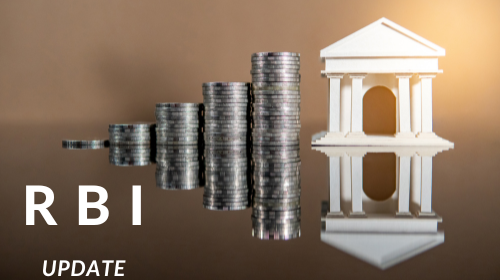Category: Foreign exchange management act - fema
Title: RBI’s FEMA Amendment: A Strategic Leap for Indian Exporters in Global Trade
The Reserve Bank of India (RBI) has unveiled a transformative policy shift that promises to redefine how Indian exporters manage cross-border transactions. Through its recent amendment to the Foreign Exchange Management Act (FEMA) (Notification No. FEMA 10(R)(5)/2025-RB), the central bank now permits exporters to open and maintain Foreign Currency Accounts (FCAs) with overseas banks. This bold move aims to streamline international trade operations, empower businesses, and position India as a more competitive player in the global marketplace.
Breaking Down the RBI’s FCA Amendment
Previously, Indian exporters were required to repatriate earnings within strict timelines, creating operational hurdles. The new rules introduce three key relaxations:
-
Direct Receipt of Funds Abroad: Exporters can now receive payments and advance remittances directly into foreign bank accounts, bypassing immediate conversion to INR.
-
Flexibility to Pay for Imports: Funds in FCAs can be used to settle import bills, reducing dependency on separate forex transactions.
-
Repatriation Window: Balances must be repatriated to India by the end of the following month, adjusted for “forward commitments” (e.g., pending import payments or contractual obligations).
Why This is a Game-Changer
-
Enhanced Cash Flow Management
Exporters can retain foreign earnings abroad, mitigating currency conversion costs and exchange rate risks. For instance, a textile exporter receiving USD payments can use those funds to pay for imported machinery without converting USD to INR and back, saving ~2-3% in transaction fees. -
Operational Efficiency
By eliminating bureaucratic delays in repatriation, businesses gain quicker access to working capital. This is critical for MSMEs, which contribute ~40% of India’s exports but often struggle with liquidity. -
Global Competitiveness
Countries like China and Vietnam already allow similar forex flexibility. This amendment levels the playing field, enabling Indian exporters to bid for contracts requiring upfront foreign currency guarantees. -
Forward Commitments Adjustment
The provision to adjust repatriation for future obligations offers strategic financial planning. For example, an exporter with a $1 million order can retain funds to cover raw material imports, avoiding repeated forex transactions.
Gujarat: India’s FDI Powerhouse and Its Foreign Investor Appeal
Gujarat, India’s industrial and export hub, has long been a magnet for Foreign Direct Investment (FDI). The state accounts for ~30% of India’s total FDI inflows, driven by its pro-business policies, world-class infrastructure, and sectoral diversity. Here’s how Gujarat benefits from FDI and attracts global investors:
-
Key Sectors Driving FDI
-
Automotive & Manufacturing: Global giants like Suzuki (Japan), Tata Motors, and Ford have established plants in Gujarat’s auto hubs like Sanand and Halol. Suzuki’s $1.4 billion investment in its Gujarat plant in 2023 underscores confidence in the state.
-
Renewable Energy: Gujarat leads India’s green energy transition, housing Asia’s largest solar park in Charanka and attracting investments from firms like Adani Green and France’s TotalEnergies.
-
Pharmaceuticals & Chemicals: The state contributes ~28% of India’s pharma exports, with companies like Sun Pharma and Zydus Cadila leveraging Gujarat’s ports and SEZs.
-
Semiconductors: Recent mega-deals, like the $2.75 billion Micron Technology plant in Sanand, position Gujarat as India’s semiconductor hub.
-
-
Infrastructure Edge
-
Ports: Gujarat’s 1,600 km coastline hosts 40 ports, including Mundra (India’s largest commercial port), facilitating 40% of India’s cargo traffic.
-
Dholera Smart City & GIFT City: The Gujarat International Finance Tec-City (GIFT City) offers a global financial ecosystem, while Dholera’s smart city project attracts tech and manufacturing FDI.
-
-
Policy Support
-
Vibrant Gujarat Summit: This biennial global investor meet has secured pledges worth ₹45 lakh crore ($540 billion) since 2003, with 2024 editions focusing on green hydrogen and semiconductors.
-
Ease of Doing Business: Gujarat ranks among India’s top states for regulatory ease, with single-window clearances and subsidies for MSMEs.
-
-
How RBI’s FCA Amendment Boosts Gujarat
-
Exporters in Gujarat can now retain forex earnings abroad to pay for imported machinery (e.g., textile looms from Germany) or raw materials (e.g., lithium for EV batteries), reducing dependency on Indian banks.
-
Foreign investors in Gujarat’s SEZs, like the Kandla SEZ, benefit from smoother forex transactions, aligning with global trade practices.
-
Industry Reactions: Optimism with Caution
Trade bodies like FIEO (Federation of Indian Export Organisations) have hailed the move as “long overdue.” FIEO President Dr. A. Sakthivel noted, “This will significantly reduce hedging costs and improve exporters’ ability to negotiate better terms with global buyers.”
However, experts urge caution:
-
Compliance Risks: Exporters must ensure FCAs are used solely for permissible transactions to avoid FEMA violations.
-
Tax Implications: Funds retained abroad may attract scrutiny under India’s Black Money Act if not properly documented.
Global Context: Aligning with Best Practices
Countries like Singapore and Germany allow businesses to hold foreign currency accounts, facilitating seamless trade. India’s step mirrors global trends toward liberalizing forex controls, aligning with its goal to achieve $1 trillion in merchandise exports by 2030.
Conclusion: A Win for “Ease of Doing Business”
The RBI’s amendment is more than a regulatory tweak—it’s a strategic enabler for India’s export ambitions. As global trade evolves, this flexibility will help Indian businesses pivot swiftly, capitalize on opportunities, and strengthen their global footprint.

